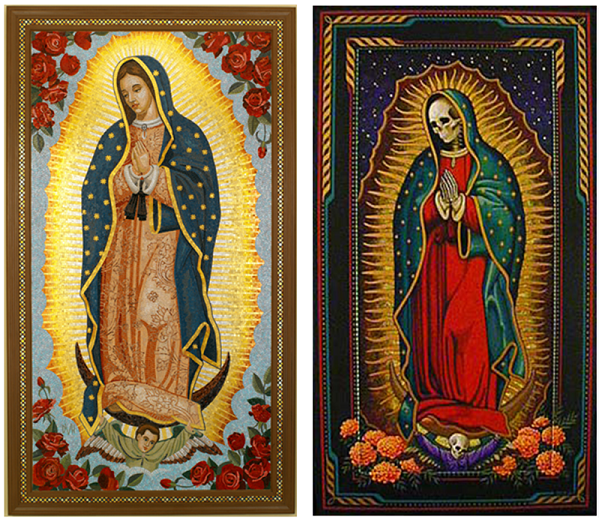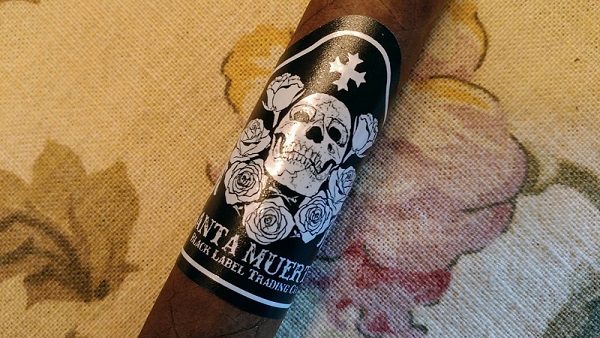[ by Charles Cameron — my most original contribution to theology? — saints of negative virtue ]
.
Anthony Bourdain, RIP.
Friend Callum Flack drew my attention to Don’t Eat Before Reading This: A New York chef spills some trade secrets in the New Yorker yessterday. It’s a piece Anthony Bourdain, chef raconteur extraordinaire, wrote in the waning months of th twentieth century, and in Callum’s note it is “The article that kicked off Anthony Bourdain’s writing career. Everything is there already: curiosity, no-bullshit, brotherhood, secrets. Hell of a rollick.”
I’ve occasionally dipped into one of Bourdain’s exotic foods shows on TV, but was frankly surprised and impressed by the outbreak of love and high respect that attended his recent passing. Naturally, I read the piece, and this sentence jumped out at me:
In fact, it was the unsavory side of professional cooking that attracted me to it in the first place.
Those words crystallized for me something i’ve been feeling my way into for years — the sense that there is a second sanctity, just as laudable as the well-recognized first. Bourdain, I saw very clearly in that moment, is a saint of the second category — no insult or diminishment in any way intended — and that remark of his offers exactly the right term to begin my consideration of the hitherto intuited, but to my knowledge seldom theologically recognized category of the sacred to which Bourdain belonged.
Anthony Bourdain was a saint of thee unsavory.
**
Bourdain’s piece opens with a paean to unsavories to be savored and tasty cruelties of various forms:
Good food, good eating, is all about blood and organs, cruelty and decay. It’s about sodium-loaded pork fat, stinky triple-cream cheeses, the tender thymus glands and distended livers of young animals. It’s about danger—risking the dark, bacterial forces of beef, chicken, cheese, and shellfish. Your first two hundred and seven Wellfleet oysters may transport you to a state of rapture, but your two hundred and eighth may send you to bed with the sweats, chills, and vomits.
Shocking. Distinctly unsaintly.
Sanctity of the first category is liable to sound more like this account of the diet of FF Baptiste Vianney, the Curé d’Ars:
There was no housekeeper at the presbytery. Until 1827 the staple of his food was potatoes, an occasional boiled egg and a kind of tough, indigestible, flat cake made of flour, salt, and water which the people called .[2] Subsequent to the foundation of the orphan girls’ school, to which he gave the beautiful name of ” Providence,” he used to take his meals there. At one time he tried to live on grass, but he had to confess that such a diet proved impossible. He himself reveals his mind, as regards all this, in the words he addressed to a young priest: “The devil,” he said, “is not much afraid of the discipline and hair-shirts what he really fears is the curtailing of food, drink and sleep.”
This too is shocking — but Shakespeare would have recognized and, may we even say, delighted, in both. Indeed, in responding to Callum, I wrote:
Shakespeare knew all about this type of sanctity, theology misses, the blues know it.
**
We frequently view the creator, religiously speaking, as “all good” — in which cae the category of the sacred will tend to be open to those whose lives demonstrate extreme “goodness ” — purity, love, self-sacrifice, call it what you will. But if we view the creator, religiously or in terms of evolutionarily biology and psychology, as an artist, then tension becomes a positive, the brilliant extreme of “evil” as significant as that of “good” — and Hannibal Lecter a paragon of negative virtue. Shakespeare must have relished writing Lady Macbeth.
Shakespeare, the great dramatist of our humanity, speaks to the unsavory as well as the savory virtues, while the blues, among the most piercing of our expressions of grief, fury, jealousy, and yes, sin, is also a fount of joy and exultation. In a later sermon in this series, I shall explore Eric Clapton‘s two songs, Have You Ever Loved a Woman, and Wonderful Tonight — one of which is an exploration of “a shame and a sin” — the other of the wonder of an evening in love..
**

Let me note briefly here that Santa Muerte is an example of a folk outcropping from traditional Catholic piety in a morbid direction not sanctioned by the Church — an unsavory saint, and what is perhaps worse, visually an inversion of the Blessed Virgin Mary. Her typical offerings include whiskey and cigars.

**
Getting back to our culinary theme, I ran across a fascinating account of JS Bach‘s eating habits recently, headed:
J.S. Bach’s wife recorded an epic meal that he enjoyed after dedicating the new organ in Halle on May 3, 1716. The meal had almost as many courses as he had children
That was quite a few. The courses:
Beef bourguignon, followed by sardines and pike, then smoked ham, a side plate of peas and a side plate of potatoes, spinach (that apparentttly counts as one course), belgian endive, and let’s get hearty, roast mutton, veal, squash, a head of lettuce, ooh, sweet, glazed donuts (plural), white radishes, sweet again and a touch sour, candied lemon peel, fresh butter, and cherry preserves
— surely those last two go with a large tranche of bread, no? — Mrs Bach didn’t tell us. In any case, stout JS Bach was obviously quite a trencherman.
And yet his name crops up in an Episcopalian church calendar as that of a saint, with his feast day on July 28:
Johann Sebastian Bach, 1750, George Frederick Handel, 1759, and Henry Purcell, 1695, Composers
followed a short while later on August 5th by:
Albrecht Dürer, 1528, Matthias Grünewald, 1529, and Lucas Cranach the Elder, 1553, Artists
— while the Orthodox Church in DC celebrates the life of “St. Andrei Rublev, iconographer” on July 4/17.. while Kenneth Randolph Taylor, an Episcopalian in Georgia, is compiling his own “ecumenical calendar of saints”, and includes “the poet and Jesuit priest Gerard Manley Hopkins” as a saint, and surely John Donne and perhaps even Jonathan Swift will soon follow..
My point being that artists seem to occupy a space that has plenty of room for culinary delight, wives and childen, asceticism, monasticism, Lutheranism, Catholicism, Anglicanism, you name it. My own birthday, November 27, occurs in older Catholic calendars as the feast of Sts Baarlam and Ioasaph, whose story is recounted by St. John Damascene and can be traced back to a tale of the Buddha (Ioasaph = Iodasaph = Bodasaph = Bodhisattva if I recall the various names as they can be traced back to their various sources) — so I have a truly ecumenical saint’s day for a birthday in Catholic tradition — and the Buddha as a patron saint!
**
Anyway, how long till the church recognizes the uncanny lack of hypocrisy in Hannibal Lecter, ambling down a street in the Bahamas, intent on having “an old friend for dinner”…?
IMO, that’s the over-the-top case that brings my whole suggestion here into the status of an Open Question.




